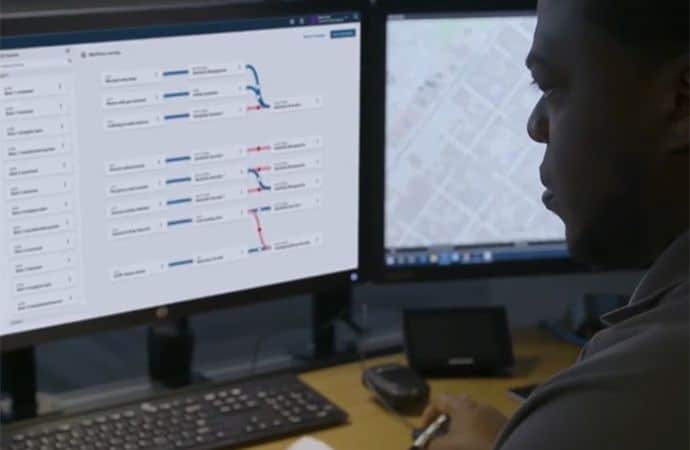Great software can propel your operation to the next level. Hardware can get you there, too. However, it’s the connection between the two that matters the most for many businesses. Failing to optimize the relationship between hardware tools and software systems can waste time and money. Let these tips guide you away from trouble and toward maximum productivity.
Beware of Consumer Temptations.
In a world that runs on smartphones, business managers commonly assume they can tailor the devices and the software for their business purposes. The approach seems practical and feasible but rarely turns out that way. Business managers who jump on a consumer path soon discover it’s much harder, not easier.
“You’re at the mercy of a consumer-driven market that’s constantly changing,” says Mike Markham, Commenco’s Director of Technology Solutions. “Operating systems and devices are changing all the time at a very fast pace. If your company’s software is dependent on smartphones, you’ve got to keep up with the changes to keep everything working right.”
Managing business software tied to multiple smartphones and users quickly becomes overwhelming. Markham says keeping business software and consumer hardware working in harmony just gets harder with more employees.
“You’re always preparing for the next devices coming out and adjusting to changing device software. If you’re managing an expanding group of users, it can get crazy and many businesses finally realize it’s just not worth it.”
Throw in the fact that smartphones include all kinds of unrelated app distractions to tempt employees’ attention, and the situation is even less appealing. Professional devices are designed with dedicated purposes and functions to keep work focused and maximize productivity. Professional devices are also made to withstand the day-to-day abuse of business operations.
“Smartphones are cheap enough so you might think, well if they break, I’ll just buy replacements. Then you start having to buy more replacements than you expected. Plus, the replacements may not be the same, and then you’re having to coordinate different phones with some likely differences in their operating software. The responsibility snowballs.”
Certified Compatibility is Key.
Even the best professional hardware tools, everything from mobile computers and surveillance cameras to barcode scanners and printers, can be a waste of money if they don’t work well with your company’s software. The reverse is also true. Great software depends on strong compatibility and quality data input from hardware tools. Don’t just focus on one or the other. Markham says a holistic view of the hardware-software relationship is the only way to ensure your overall investment delivers its full return.
“You want your hardware tools and your software system working very closely, with a strong connection all the way down to the firmware. You want certified compatibility that allows you to get the most out of both. It’s critical for taking advantage of all features and functions, and it’s going to make your life a lot easier too when it comes to upgrades and maintenance.”
If there’s a certain hardware tool you’ve just got to have even though it’s not certified to work with your software system, you may be able to rig compatibility. But then what? Watch out. You’ll get into custom development territory that’s a much bigger responsibility than sticking to mainstream compatibility certifications.
“You don’t want to be on an island. Owning something that’s highly customized to the point that it takes you completely out of the pool of what everyone else is using is not a good idea. You’ll miss out on updates and advancements because they may not work. You could also be much more vulnerable to security breaches on top of trying to iron out all kinds of operational inconsistencies. And dealing with all of that is going to be expensive.”
Markham says you want to think bigger than what works right now and what will get you by. The goal should be staying in the mainstream of hardware-software compatibility to position your system for a future of growth. It’s the best way to make sure you don’t miss out on what your company needs as it changes.
“Your business is going to grow. New software versions and hardware models are going to come out to help you grow and you’ll want to be part of that. You’ll want the benefits of a strong software-hardware relationship over time. You don’t want that feeling of missing out on new tools hitting the market or powerful nuances in software that might help your particular operation compete.”
Look at More Than Parts and Pieces.
The right hardware-software arrangement involves more than strong compatibility. While software developers work to create all the calculation and computation solutions your business needs, hardware specialists cover off on matching solutions to the rest of your operation.
“It’s more than choosing hardware tools to do the right technical functions and connecting them to your software. It’s also about the environmental conditions during use and how users will be handling the tools,” explains Markham. “Is your team working in a temperature controlled environment? Are they working hands-free? What kind of battery life do they need in a device? Those are just a few of the questions we have to explore to match hardware to the job it’s going to do for your people and your business. It’s more complex than you might think and you don’t want to skip over any of it or you’ll risk compromising the quality data inputs that feed your software.”
Environmental conditions and usability realities aside, what if you have your eye on a particular hardware tool that you’re confident will work wonders for your business? Markham urges you to check with a hardware specialist before you go all in.
“We’ve seen so many different kinds of devices used in so many different ways over the years. We know what’s worked and what’s failed in a huge spectrum of applications. We might have a better recommendation that’s more effective and less expensive than what you have in mind. You’d be surprised at the interesting ways businesses use their hardware tools to feed their software systems, and you may never know unless you talk to an experienced specialist.”
Bottom line: whether you’re a small business owner, facility manager or IT professional, make sure your next hardware decision is grounded in your software realities, and let a seasoned professional guide you to the best choices for your money and your business. It’s a strategy that will keep you confident and competitive both today and tomorrow.






